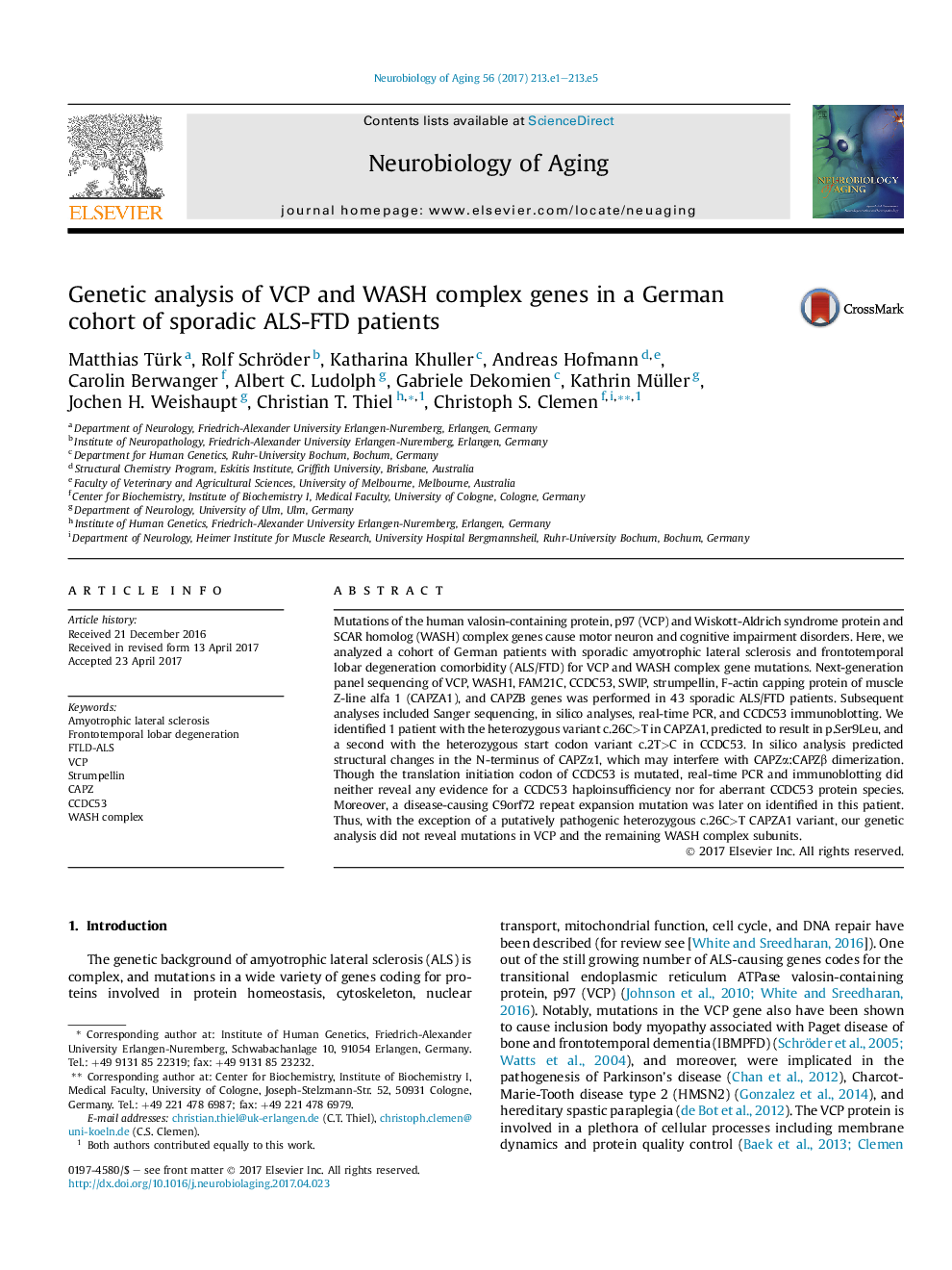| Article ID | Journal | Published Year | Pages | File Type |
|---|---|---|---|---|
| 4932733 | Neurobiology of Aging | 2017 | 5 Pages |
Abstract
Mutations of the human valosin-containing protein, p97 (VCP) and Wiskott-Aldrich syndrome protein and SCAR homolog (WASH) complex genes cause motor neuron and cognitive impairment disorders. Here, we analyzed a cohort of German patients with sporadic amyotrophic lateral sclerosis and frontotemporal lobar degeneration comorbidity (ALS/FTD) for VCP and WASH complex gene mutations. Next-generation panel sequencing of VCP, WASH1, FAM21C, CCDC53, SWIP, strumpellin, F-actin capping protein of muscle Z-line alfa 1 (CAPZA1), and CAPZB genes was performed in 43 sporadic ALS/FTD patients. Subsequent analyses included Sanger sequencing, in silico analyses, real-time PCR, and CCDC53 immunoblotting. We identified 1 patient with the heterozygous variant c.26C>T in CAPZA1, predicted to result in p.Ser9Leu, and a second with the heterozygous start codon variant c.2T>C in CCDC53. In silico analysis predicted structural changes in the N-terminus of CAPZα1, which may interfere with CAPZα:CAPZβ dimerization. Though the translation initiation codon of CCDC53 is mutated, real-time PCR and immunoblotting did neither reveal any evidence for a CCDC53 haploinsufficiency nor for aberrant CCDC53 protein species. Moreover, a disease-causing C9orf72 repeat expansion mutation was later on identified in this patient. Thus, with the exception of a putatively pathogenic heterozygous c.26C>T CAPZA1 variant, our genetic analysis did not reveal mutations in VCP and the remaining WASH complex subunits.
Related Topics
Life Sciences
Biochemistry, Genetics and Molecular Biology
Ageing
Authors
Matthias Türk, Rolf Schröder, Katharina Khuller, Andreas Hofmann, Carolin Berwanger, Albert C. Ludolph, Gabriele Dekomien, Kathrin Müller, Jochen H. Weishaupt, Christian T. Thiel, Christoph S. Clemen,
